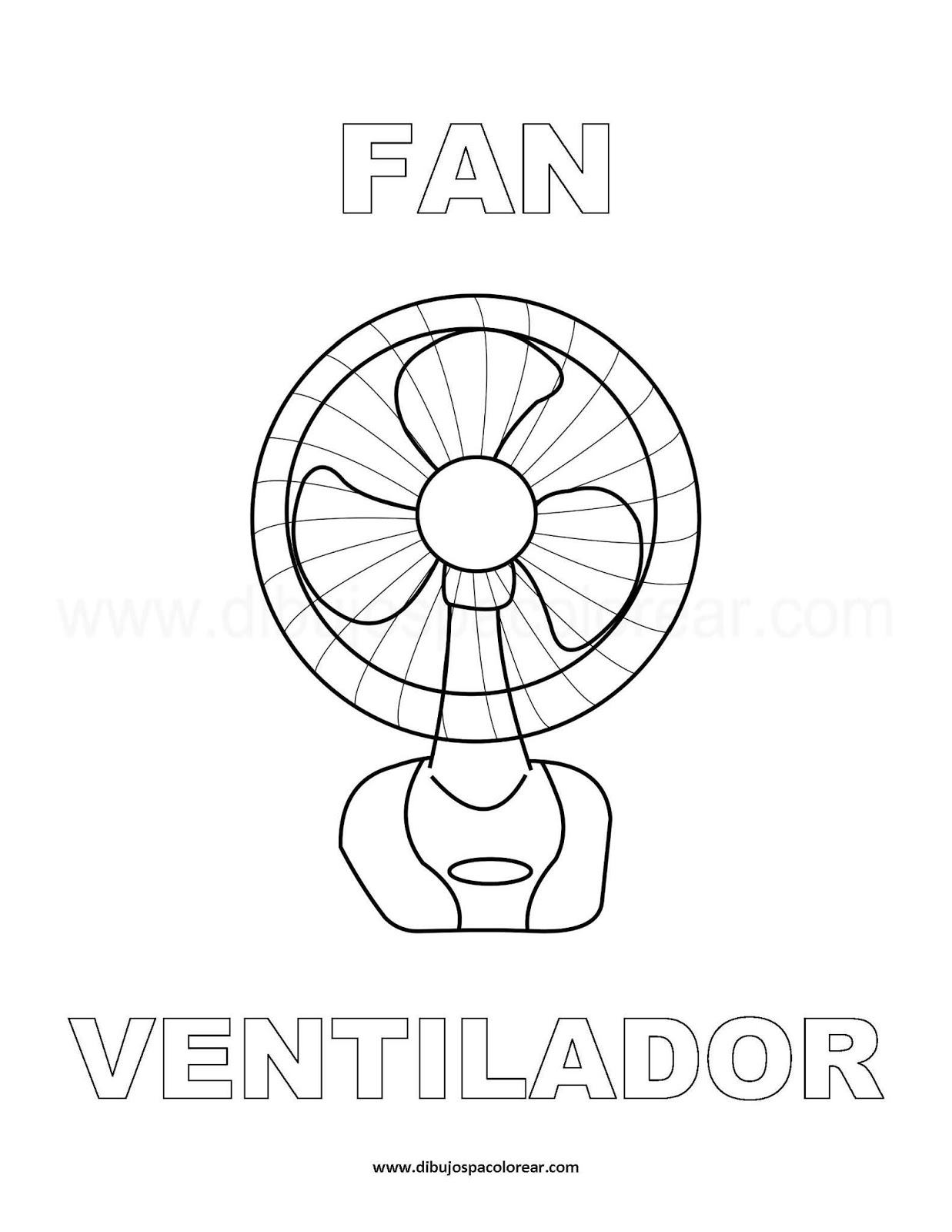In the realm of language learning, specific terms often pose unique challenges, particularly when they refer to everyday objects. One such term is "ventilador en ingles," which translates directly to "fan" in English. This seemingly simple word carries with it a multitude of uses and meanings, not only in the context of cooling systems but also in various idiomatic expressions and cultural references. Understanding how to properly use "ventilador" in English can enhance your conversational skills, making you more articulate and effective in your communication.
In this article, we will explore the different facets of the word "ventilador en ingles," delving into its definitions, uses, and cultural significance. Additionally, we will answer some common questions that arise concerning fans in general, including their types, benefits, and even how to choose the right one for your needs. By the end of this guide, you will have a thorough understanding of how to incorporate "ventilador" into your English vocabulary with ease.
Whether you're a language learner seeking to broaden your vocabulary or simply curious about the various applications of the term, this article aims to provide valuable insights. So, let's dive in and uncover everything you need to know about "ventilador en ingles!"
What is the Meaning of "Ventilador en Ingles"?
The term "ventilador" translates to "fan" in English. This encompasses various types of fans, including ceiling fans, floor fans, and table fans, all designed to circulate air and provide cooling relief in warm environments. Fans play a crucial role in maintaining comfort in both residential and commercial settings.
What Are the Different Types of Fans?
- Ceiling Fans: Mounted on the ceiling, these fans provide excellent air circulation and can help reduce energy costs by making rooms feel cooler.
- Table Fans: Portable and convenient, table fans can be moved from room to room as needed.
- Floor Fans: Larger than table fans, floor fans can efficiently cool larger areas.
- Exhaust Fans: These are used to ventilate areas like kitchens and bathrooms, helping to remove odors and moisture.
How Do Fans Work?
Fans operate by rotating blades that create airflow. This movement of air helps to evaporate sweat from our skin, making us feel cooler even when the actual temperature remains unchanged. Understanding the mechanics behind fans can help you appreciate their effectiveness in heat management.
What Are the Benefits of Using a Fan?
Utilizing a fan comes with a range of advantages. Here are some key benefits:
- Energy Efficiency: Fans consume less electricity compared to air conditioning units, making them a cost-effective cooling solution.
- Improved Air Circulation: Fans help to circulate air within a room, which can promote better ventilation and reduce humidity levels.
- Versatility: Fans can be used in various settings, from homes to offices, and can be easily relocated as needed.
- Noise Levels: Many fans operate quietly, making them suitable for use in bedrooms and other quiet spaces.
How to Choose the Right Fan?
Selecting the ideal fan for your needs involves considering several factors:
- Room Size: Larger rooms may require more powerful fans or multiple units.
- Type of Fan: Decide whether you need a ceiling fan, table fan, or another type based on your specific requirements.
- Energy Efficiency: Look for fans with energy-efficient ratings to help save on energy costs.
- Noise Level: If you plan to use the fan in a bedroom or office, consider one that operates quietly.
What Are Some Common Misconceptions About Fans?
There are several myths surrounding the use of fans that can lead to misunderstandings:
- Fans Lower Temperature: It's important to note that fans do not lower the temperature of a room; they simply create a wind-chill effect.
- Ceiling Fans Are Only for Summer: Many ceiling fans come with a reversible motor, allowing them to circulate warm air during colder months as well.
- All Fans Are Noisy: Many modern fans are designed to operate quietly, making them suitable for various settings.
Can You Use a Fan in Place of Air Conditioning?
While fans can provide relief from heat, they are not a direct substitute for air conditioning. Fans work by moving air, which can create a cooling sensation for individuals in the room. However, if the temperature is excessively high, air conditioning may be necessary to achieve a comfortable environment.
Where Can You Find High-Quality Fans?
Fans can be purchased at a variety of locations, including:
- Home Improvement Stores: These stores often have a wide selection of fans, from ceiling units to portable models.
- Online Retailers: Websites like Amazon offer a vast range of fans with customer reviews to help guide your purchase.
- Electronics Stores: Some electronics stores may carry fans, particularly those with advanced features.
What Should You Consider When Maintaining a Fan?
Proper maintenance can extend the lifespan of your fan. Here are some maintenance tips:
- Clean Regularly: Dust and debris can accumulate on blades and grills, affecting performance.
- Check for Loose Parts: Ensure all screws and parts are tightened to prevent noise and wobbling.
- Store Properly: If you plan to store a fan, ensure it is clean and dry to prevent mold and mildew.
Conclusion: Why Understanding "Ventilador en Ingles" Matters
Understanding the term "ventilador en ingles" not only enriches your vocabulary but also deepens your appreciation for a simple yet crucial household item. Whether you're using a fan to cool down on a hot day or to improve air circulation, knowing how to discuss and choose the right fan can greatly enhance your home comfort. With the insights shared in this article, you are now equipped to make informed decisions about fans in your life.




